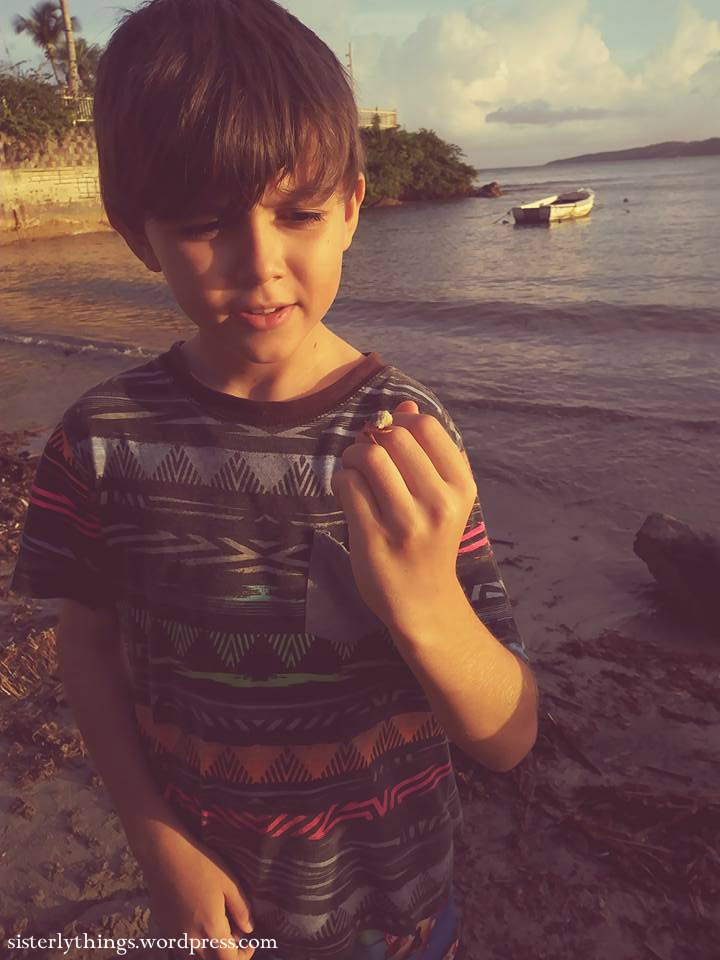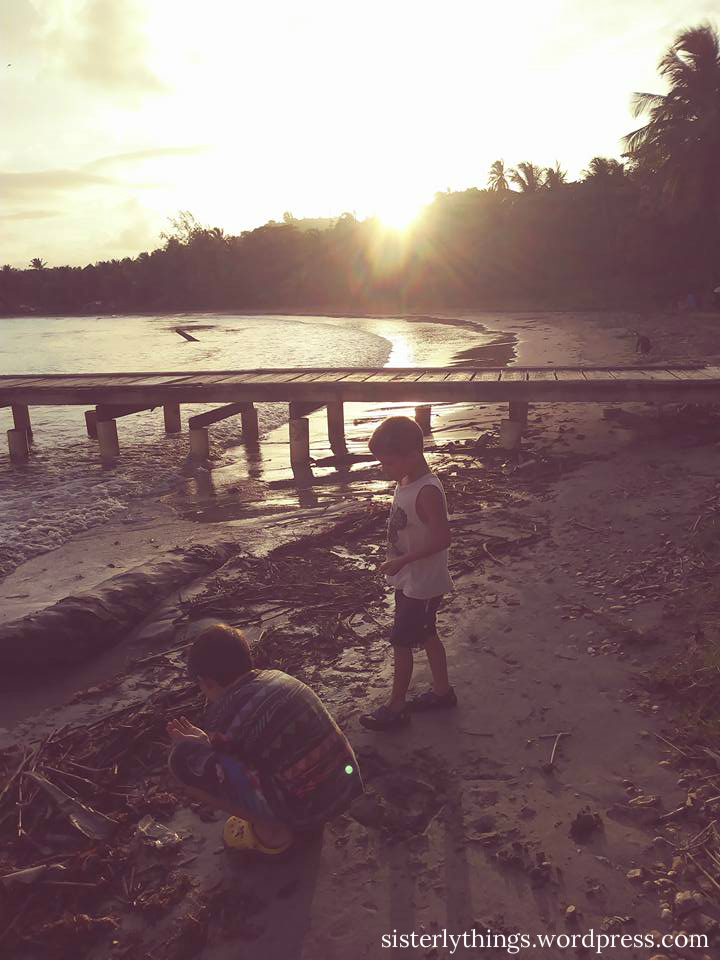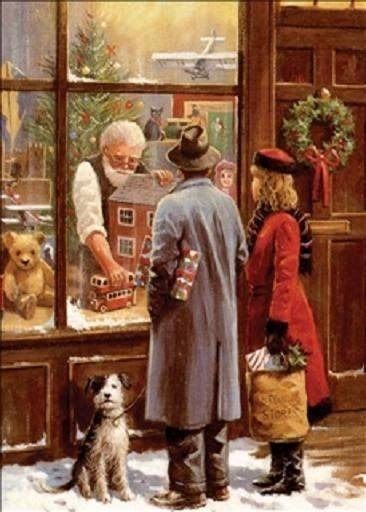As the title suggests, I have been homeschooling my brother for a little over a year now.
I was homeschooled my whole life (except for a three-month stint in a private school while I was in foster care... but that's another story) and I love everything about it, as I talked about in my last homeschooling post, My Family's Homeschool.
I started working with my little brother when I was twenty years old. My mom was overseeing the large group and my little humdinger was slipping through the cracks. He's always been a remarkably smart kid but he needed one-on-one work and she wasn't finding enough time in her overstuffed days. She asked me if I'd be willing - and I said yes.
I've worked with my siblings before. I've always loved teaching (I wanted to be a teacher when I was little... then a lawyer... then a writer...) and I had some free time in my mornings to dedicate to him. So that's where we started.
(Side note: I wrote this post in May, 2016 but I'm uploading it again now in September, 2017! Just in case there's any confusion :)
The Beginning
He was eight and in third grade. (We don't really prescribe to the whole grading thing except on a general basis, by the way.) He could read and write but wasn't doing very well with either. At first he was excited to work with "his Ruthie." Then the daily grind set in and it's been quite the adventure ever since ha di ha.
What I wanted most in working with him was to plant in him a real desire and love for learning. After all, I loved learning as a child. I loved books. I loved the sense of accomplishment. If you can get a child to love learning, then you've given them the world at their fingertips.
Well, despite the little man's innate brilliance (and I'm not exaggerating, I genuinely think the kid is a genius!) he had none of that stuff. He didn't want to read. He loathed copywork (still does). He wanted to do the bare minimum and not a speck more. He had this habit of working for about 1.5 minutes before tipping over sideways on the couch and insisting that he needed a "break" whilst sliding a pillow beneath his head.
So what did I do?
I started out by reading
A Charlotte Mason Companion by Karen Andreola. (This book is worth it's weight in GOLD.) We pretty much adhere to the concepts Charlotte Mason teaches but I guess you could say we're pretty eclectic. We don't really prescribe to one method or any one particular type of curriculum. But reading that book gave me a lot of focus and helped me decide what it was I wanted to do with him.
Books & Narration
The first book I started reading to him (because I think that the secret to unlocking a kid's love of learning is getting him to love books) was
The Bronze Bow by Elizabeth George Speare. At first, I could barely get him to listen to a full chapter. Teaching him to narrate was another doozy. But I kept at it... and soon, he was begging me every day to start out by reading to him. (Although it could have just been a ploy to put off the dreaded copywork as long as possible... whatever. I took what I could get.)
We worked through the book slowly but steadily. (I'm only talking about books at the moment, but this was in addition to the rest of his subjects. More on that later.) About halfway through, I introduced another book:
Stories from English History. He loved this one! He didn't have much patience for the tedious chapters about obscure kings and princes (
I found them super interesting - not that he cared, ha)... but he loved hearing all about the different battles and wars that took place.
Using Karen's Companion book as a guide, I got creative. He still hated narrating, so one day, I asked him if he'd like to draw a picture of the battle scene we'd just read about. He went for that, so I got him a piece of paper and some crayons and watched him set to work. (Art, narration, and history all in one? Yes, please!) It was a hit. From then on, whenever a battle scene was particularly engrossing, he would plead to draw a picture of it.
Because I started working with my brother halfway through the school year, I had to do a lot of assessing on the go. Right away, I realized that his reading skills were poor and he wouldn't do any writing unless I threatened to ground him from the television. Having him read aloud to me, and also copy down Bible verses every day, became my main focus for him.
My approach to science was pretty relaxed. I introduced nature study, and while he showed little interest, he preferred it compared to most of his other subjects. I handed him off to work with my other sister for math, since he wasn't struggling with it and seemed rather to excel in it. History was and still is our favorite subject as it springs from a variety of living books. I think it's the only thing he truly enjoys in school.
Where We Are Now
He's now nine years old and we are wrapping up fourth grade. His reading has greatly improved: when he reads aloud, the words flow with fewer pauses or stumbles. He is reading to himself, too, and
that was a miracle in itself as I no longer have to beg him to get his reading done. (Thank you,
Robinson Crusoe!)
Spelling is our current focus. He isn't writing cursive without prompting just yet, but as we plan to work through the summer, it will be one of my goals. I also plan on teaching him how to use the dictionary. He hasn't done drawing for narration in awhile, and while still reluctant, seems to enjoy narration more when
I don't know the subject material (like when he reads silently to himself).
Here is a brief overview of his current subjects.
SOCIAL STUDIES/HISTORY
Since January of this year, we have read at least eight books together.
Sacagawea: Girl of the Shining Mountains taught us all about Lewis and Clark's Corps of Discovery Expedition. (We drew maps and pictures of them and their journey - he loved it.)
The Sign of the Beaver brought early American settlers' interactions with Indians to life.
Who Was Abraham Lincoln? introduced our nation's sixteenth president.
Robert E. Lee: Hero of the South (by Charles P. Graves) paired nicely with our study on Lincoln and the Civil War, and was further supported by
Civil War on Sunday by Mary Pope Osborne. We've just finished
Boys and Girls in American History (by Alfred F. Blaisdell... it's no longer in print - cry with me) which he seemed to enjoy a lot. He is currently reading
Revolutionary War on Wednesday and this one he reads to himself and then narrates to me. (And believe it or not, we read more...)
GEOGRAPHY
When it comes to geography, I wasn't sure how to approach it at first. I mean, do I get a book on it? Do we just fit it in when we can? Turns out, I needn't have worried. It all came together naturally as we read history together. I keep an atlas and several maps nearby and as we read about wars and battles, people and places, I tell him to try and find the places we're reading about on the map. We discuss each place. If there's something we need an answer on, I look it up online. (Like the exact location of Fort Sumter, which our books weren't providing.)
While we were learning about the Civil War, I printed out a blank map of the USA and he colored in the Union states, the Confederate states, and the territories that weren't states yet. This helped him visualize how the secession affected the US a little better. Using a detailed atlas, we found where Robert E. Lee grew up; we traced Lewis and Clark's journey across the country; we discussed the places and rivers that Henry Hudson forded, and so on and so forth. Thankfully, geography has become a no-brainer.
SCIENCE
We're currently doing Steck & Vaughn's 4th grade Science workbook. I'm not crazy about it. I like how direct and to the point it is, but that's about it. I'm currently compiling a wishlist of living books that will hopefully bring all this science stuff to life.
I've printed a lot of worksheets off the Internet and I have a really colorful and fun Encyclopedia of the Human Body which points out all these fun and interesting facts. To be honest, science is still a work in progress. I don't feel like kids learn well from workbooks and textbooks and I want him to
know all this stuff we're learning about - not just memorize a truckload of boring facts. I'll let you know when we've had a breakthrough!
MATH
He's actually on his third math book this semester. First, he did Sylvan's fourth grade math. It was pretty easy and not as in-depth as we would have liked. Then, he briefly dallied in a workbook we had on hand (not realizing it was lacking the accompanying textbook) before we realized it wasn't working. Then he did a 3-4 level workbook on multiplication and division. When he finished that, we moved him into
this math book, which my mother contends is the best, because of how thorough it is. That's where he is now, and he's cruising along quite well. We will be working through the summer, and once he's finished this book we'll move him up to the fifth grade one.
LANGUAGE ARTS
Phonics, copywork, narration, cursive, and creative writing - these comprise the bulk of his language
arts. He's still doing phonics. It's just what's best for him right now. His reading skills need strengthening and I really want him to understand and know the different phonics rules before moving on. For phonics, he does A Beka's Level B Phonics book. He's nearly finished with it. For copywork, he does Bible verses or poems (currently doing Robert Frost's poems). Same as for cursive.
He dislikes writing so finding sneaky ways to get him to do it is a challenge. I had him writing down answers to writing prompts for a few months there, but he wasn't into it. Needless to say, writing is a work in progress, too. I really want him to find a passion for it (or at least a tolerance) but so far, no dice. I'm thinking of Emma Serl's Intermediate Language Lessons for next year... but we'll see.
Ideas?!
Final Thoughts
So there you have it - homeschooling my brother as a second-generation homeschooler! I truly enjoy it, even in spite of my little humdinger's boyish follies. Watching him grow and learn and comprehend more has been a blessing I think I'll cherish my whole life. After all, how rare is this relationship we have? That of sister and brother is not uncommon, but sister, brother, teacher, and student? I hope and pray that he looks back on these years with as much appreciation as I do now.
It's been fun!














